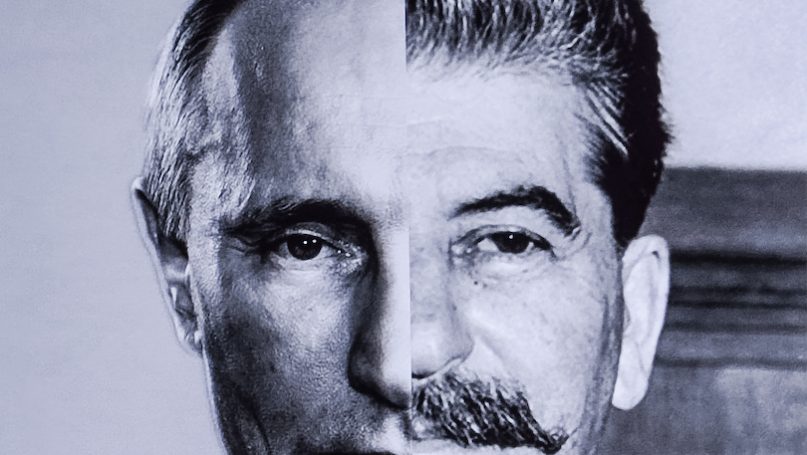
On Sunday and Monday Europe and Russia will deal with the end of World War II in two very different ways. Europe will commemorate the end of World War II on 8 May while Russia will celebrate the end of the Great Patriotic War (GPW) a day later. President Vladimir Putin will celebrate in Moscow and in occupied Ukraine what he believes to be the re-claiming of “ancient Russian lands” in south-eastern Ukraine that were wrongly included by the Soviet state inside Ukraine. Although largely ignored by Western policymakers and downplayed by academics, Putin and other Kremlin leaders have espoused imperialist revanchist claims to Ukrainian territory for over a decade.
Commemoration and celebration are two very different approaches. Europe’s commemoration mixes sadness at the huge human suffering together with patriotic pride in soldiers, partisans and civilian volunteers who defeated the evil of Nazism. In contrast, Russia’s triumphalism glorifies military victory and conquest of a new empire in eastern Europe.
Vladimir Putin has revived the GPW as Russia’s main national identity. Central to Russia’s identity is the tyrant Joseph Stalin whose crimes against humanity are downplayed or ignored. Instead, Stalin is praised as the builder of a powerful Soviet super power equipped with nuclear weapons. Putin’s fanning of a cult of Stalin has been undertaken throughout the over two decades he has led Russia, reversing the more critical view of the Soviet leader that emerged during Mikhail Gorbachev’s glasnost (openness) in the late 1980s.
There has therefore never been de-Sovietisation or de-communisation in Russia resembling the de-Nazification process that reshaped post-war Germany into a leading European democracy. Indeed, it is difficult to comprehend a Germany led by a former Gestapo officer who, three decades after 1945, would be fanning a cult of Hitler. Instead, Putin’s Soviet upbringing and KGB past have driven his nostalgia for Leonid Brezhnev who presided over a Soviet “era of stagnation” and founded the 9 May celebration.
A 2019 poll found a stunning 70% of Russians believed Stalin played a positive role for Russia, up from 54% four years earlier. Half of Russians want a monument to be put up to Stalin. Europeans would be very alarmed if half of Germans, three decades after World War II, clamoured for a monument to Hitler. Putin’s cult of Stalin and ignoring of his crimes has made inroads even among the Russia’s younger generation born after the USSR disintegrated. Nearly half of young Russians aged 18-24 had never heard of Stalin’s crimes.
Putin’s cult of war and adoration of Stalin have played important roles in driving his invasion of Ukraine and the unchecked brutality of his troops. The Kremlin views Ukraine as providing a dangerous and threatening post-Soviet alternative to Russia – and not just as a democracy. The critical views of Stalin which emerged during glasnost were continued after 1991 in Ukraine and accelerated after the 2004 Orange and 2014 Euromaidan revolutions. Ukraine’s nation building process was driven by a desire to put the Soviet legacy behind it and return to Europe.
Consequently only 7% of Ukrainians hold a positive view of Stalin. While nostalgia has been growing to a record two thirds of Russians who lament the demise of the Soviet Union, in Ukraine the opposite has taken place with a steady decline to only 11%.
Putin’s re-Sovietisation and re-Stalinisation of Russia has taken place at the same time Ukraine has Europeanised. The senseless destruction of civilian targets, murder of civilians, raping and looting of the Russian army in Ukraine is a reflection of the Sovietisation Putin has promoted that has meant the Russian army has remained in effect the same Stalinist army that swept across eastern Europe at the end of World War II.
The Kremlin has particularly loathed Ukraine’s 2015 decommunisation laws which emulated those adopted earlier in Poland, the Czech Republic, the three Baltic states and elsewhere in eastern Europe. Ukraine’s laws removed 6,000 monuments of Soviet leader Vladimir Lenin, opened up KGB archives to make them one of the most accessible in former communist states, equally condemned Hitler and Stalin as tyrants and criminals, and changed celebration of the GPW to commemoration of the ending of World War II.
In equating Stalin with Hitler, Ukraine undermined Putin’s religious cult of the GPW because it shed light on the three-year Molotov-Ribbentrop Pact in 1939-41 the Kremlin would prefer to not talk about. Stalin was after all the biggest Nazi collaborator of World War II. Ukraine’s de-communisation was anathema for Putin as it rejected everything he stood for. Indeed, in occupied southern Ukraine the Russian authorities have begun reinstalling Lenin monuments.
Putin’s invasion of Ukraine and the war crimes committed by his army are an outgrowth of Russia’s unwillingness to come to terms with Soviet crimes against humanity. This is coupled with an unrelenting daily de-humanisation of Ukrainians as Nazi’s because they refuse to be Little Russians, a ludicrous claim against even Ukraine’s Jewish president Volodymyr Zelenskyy whom Russian Foreign Minister Sergei Lavrov compared to Hitler.
Putin’s so-called de-Nazification has nothing to do with combating Nazis in Ukraine and everything to do with the xenophobic Stalinist and racist climate in Putin’s Russia. The Kremlin’s openly professed goal of wiping Ukraine from the map of Europe is a sign that Nazism is alive and well in Putin’s Russia. On 9 May, the Kremlin will celebrate war, imperial conquest and state that Ukraine and the rest of Europe ranks alongside Hitler as infamous war criminals.
Further Reading on E-International Relations
- Opinion – The Risk of Nuclear War with Russia
- Opinion – A Psychological Perspective on Putin’s War with Ukraine
- Vladimir Putin’s Imperialism and Military Goals Against Ukraine
- Opinion – The West’s Mental Lockdown over Putin’s Invasion of Ukraine
- Post-Putin Russia: Five Potential Pathways
- Opinion – A Hidden Victory? The Winter War and Russia’s Invasion of Ukraine